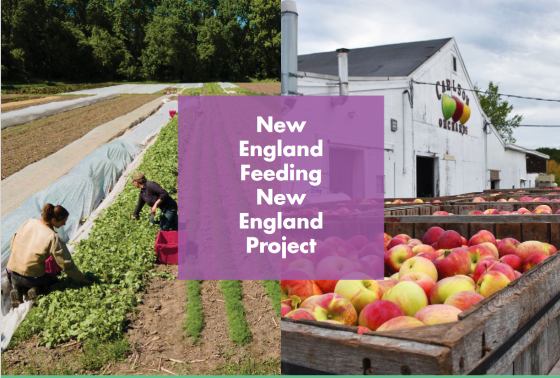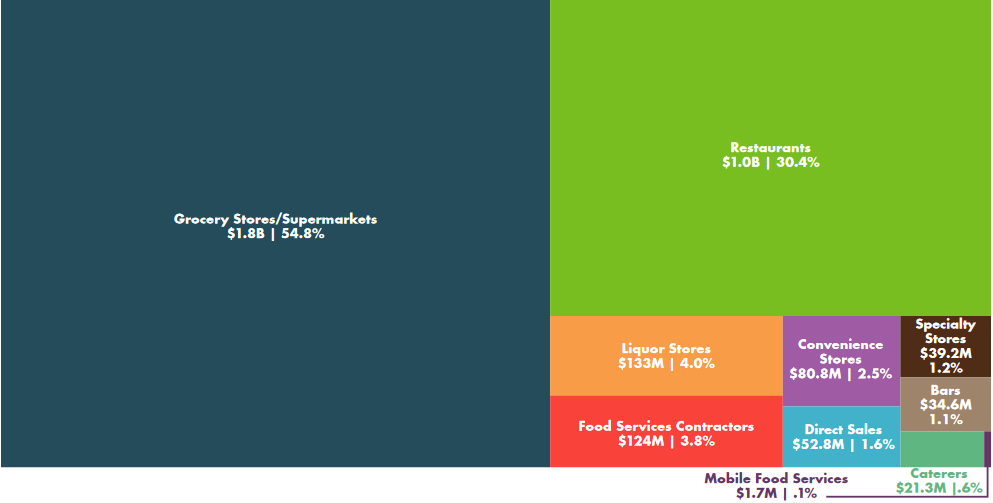Posted March 13, 2024 at 02:45pm by kelly@vsjf.org
New England Feeding New England Project

The Vermont Sustainable Jobs Fund (VSJF) is providing important leadership for a new initiative called New England Feeding New England (NEFNE), aimed at increasing 30% of the food that is produced and consumed in New England by 2030. The initiative aims to unite the food system community across six states to strengthen and grow a climate resilient, equitable, regional food system.
In June 2023, the New England Food System Planners Partnership, which initiated the NEFNE project, released its report, A Regional Approach to Food System Resilience outlining what it will take for the New England states to provide 30% of its food by 2030. The seven-part report is intended to help policy-makers, funders, food system businesses and stakeholders, community groups, and consumers understand the relative resilience of New England’s food system and plan for the future.
During 2023, sixteen researchers from around the region:
- Calculated the economic impact (sales and jobs) of New England’s food system
- Explored current eating patterns and considered what a regionally resilient eating pattern would involve
- Conducted a regional self-reliance assessment of our current land and sea-based production in the region, and
- Calculated production increases that would be required to achieve the 30% goal and considered what changes to existing market channels will need to occur in order to achieve our regional goal.
The goal of 30% by 2030 has been endorsed by the Agriculture Department Commissioners in each of the six New England states. In addition, individual state briefs highlighting the opportunities available and challenges that will be faced as each of the New England states works to contribute to achieving this ambitious regional goal. To help manage this project, The Partnership hired Leah Rovner as its Project Director. Because the VSJF serves as the fiscal sponsor of this project, Leah is considered an employee of our organization.
Vermont’s Agriculture and Food Systems Strategic Plan 2021–2030 is very much in alignment with this regional project. Farm to Plate has led the way for food system planning efforts across the country with a laser focus on the power of networks to transform systems. The Farm to Plate Network has already built a strong business services, technical assistance, and financing support system for small and midsize producers, processors, and food system businesses. We’ve continued to make significant investments in long-term food production, increasing the viability of local farms and food businesses, and protecting and preserving agricultural land. What we know from the NEFNE report is that our state will have an outsized role to play in increasing production of food that can be sold throughout the region. To reach more consumers with our locally produced food, we will need to increase the number of acres in agricultural production (which also includes more efforts are need around farmland protection) and we will need to open up more regional wholesale market outlets to our products.
As we saw from the flooding that impacted at least 27,000 acres of farmland across the state, Vermont agriculture will also have to continue to contend with and adapt to climate induced events.
Find the Report here: nefoodsystemplanners.org/projects/report-components/
Food Stores and Service Sales, 2017
How much do Vermonters spend on food? Where do they shop?
Vermonters spent over $3.3 billion at stores and restaurants in 2017. Grocery stores (56.2%) and restaurants (30.6%)—which includes full-service and fast food restaurants—accounted for 86.8% of total sales. Direct sales from farmer to customer made up 1.6% of total retail sales, the highest percent in New England.

This story originally appeared in the 2023 Farm to Plate Annual Report.
About Vermont Farm to Plate
Farm to Plate is Vermont’s statewide food system plan implemented by 350+ member organizations of the Farm to Plate Network to meet the goals of legislation passed in 2009 calling for increased economic development and jobs in the farm and food sector and improved access to healthy local food for all Vermonters. Vermont’s farm to plate food system plan is the most comprehensive in the country and the only state that has complete government engagement. In 2019, Vermont Farm to Plate was reauthorized beyond 2020. The program is managed by the Vermont Sustainable Jobs Fund, a nonprofit organization based in Montpelier, Vermont.
